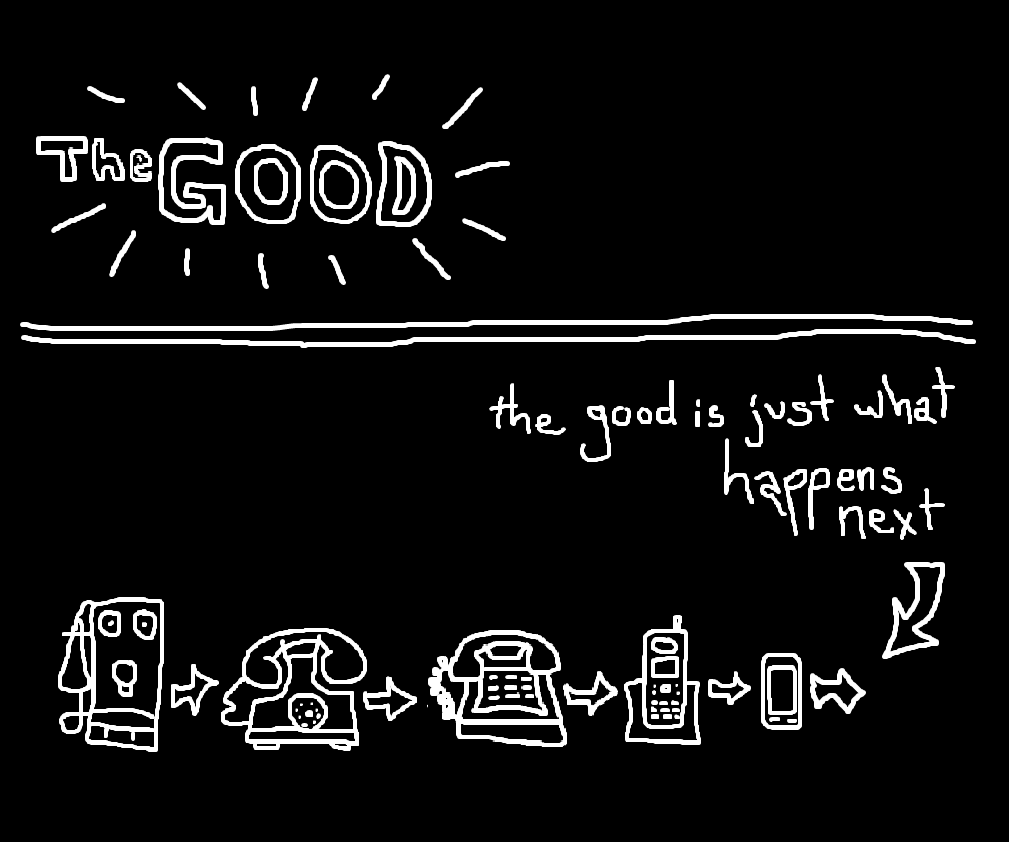
Christians are often resistant to progress, sometimes when they shouldn’t be. Christianity does not call us to be generally anti-progress. But in one sense, we ought to be a little anti-progress.
The Good, traditionally understood, is in the transcendent category. We are much more materialistic these days and, consequently, are suspicious of, or flatly reject, the category.
We haven’t lost the idea of “The Good,” but it has moved from a higher ideal to the material realm. It now lives at the end of every line of progress, which we see everywhere, even when progress is an illusion. The good is now “just what happens next.”
Progress Degrades Commitment
Pastor and blogger Toby Sumpter (“Committed as Christmas”) argues that living in this “evolutionary universe” erodes commitment. The Biblical worldview emphasizes commitment–God is so committed to humanity that he would die for us. People exhorted to be committed to God, parents, spouses, children, governments, neighbours, church and creation. But, a commitment to commitments is out of step with the dominant culture. Sumpter says that this “is why marriage . . . is not merely an old fashion custom, it is positively anti-progress.”
Change and Permanence
It is not inappropriate to find pleasure in change. We were created to desire change. I love the changes between the seasons and, although I love steak and mashed potatoes, I don’t want to eat them two days in a row. But we were also made to crave permanence. The things that human beings love most are a balance between change and permanence:
Baseball always has four bases that are positioned 90 feet apart and there are always three outs per inning. These permanent qualities are complemented with change, for no two games are alike. In this blend of constancy and variety is the appeal of baseball.
The same is true of our fascination in watching a lava lamps, a campfire, or waves crashing onto the beach. Our fascination is rooted in the balance between newness and change.
The problem arises, when we lose the balance between permanence and change.
In The Screwtape Letters, C. S. Lewis attributes our obsession with new experiences to demonic activity.
Now just as we [the tempters] pick out and exaggerate the pleasure of eating to produce gluttony, so we pick out this natural pleasantness of change and twist it into a demand for absolute novelty. This demand is entirely our workmanship. . . . Only by our incessant efforts is the demand for the infinite, or unrhythmical, change kept up.
The task of the demons is made much easier by the evolutionary worldview, that progress is always good, that dominates popular thought in our culture.
Change is a good, but it is not The Good. So in a sense, it is appropriate for Christians to be labelled inherently anti-progress.




